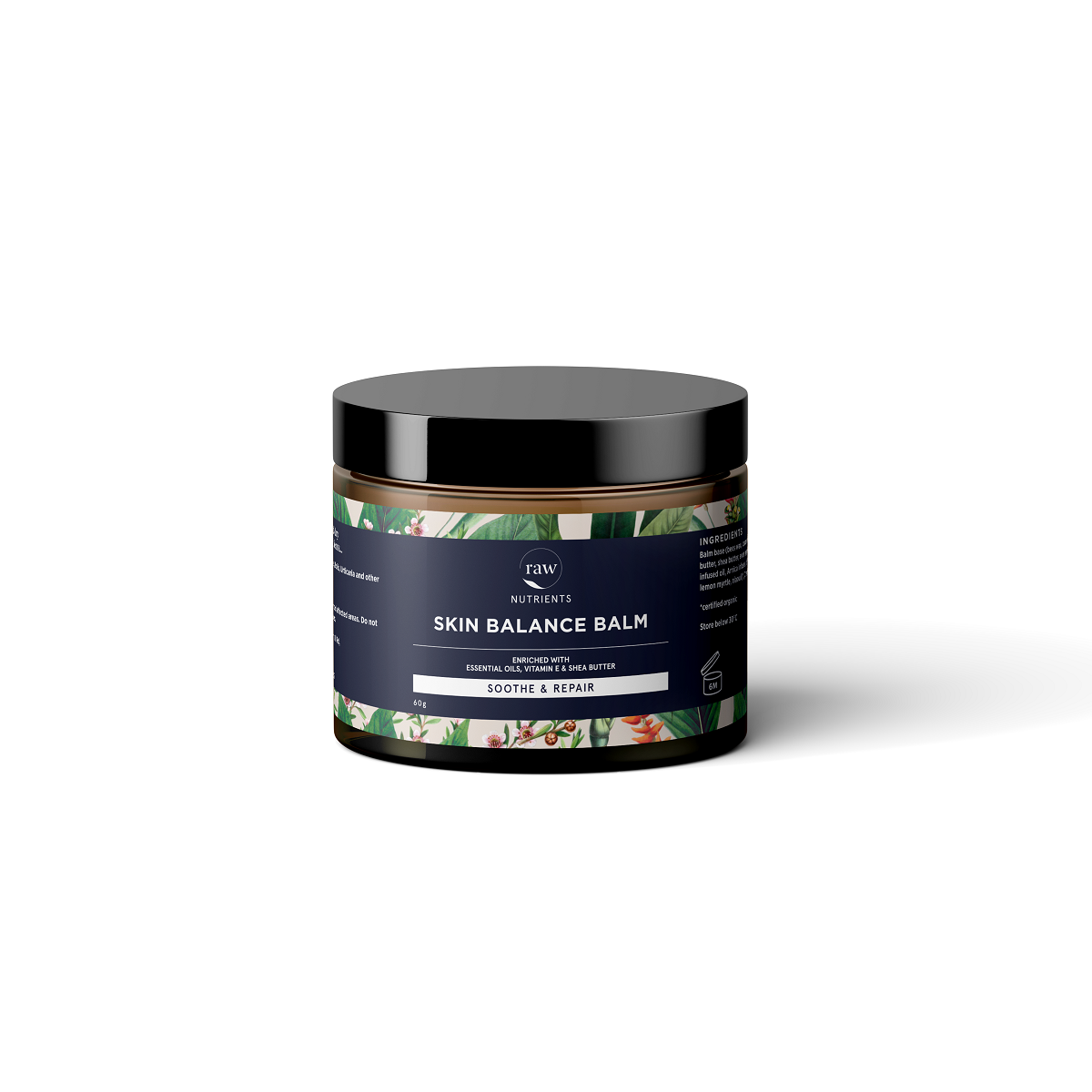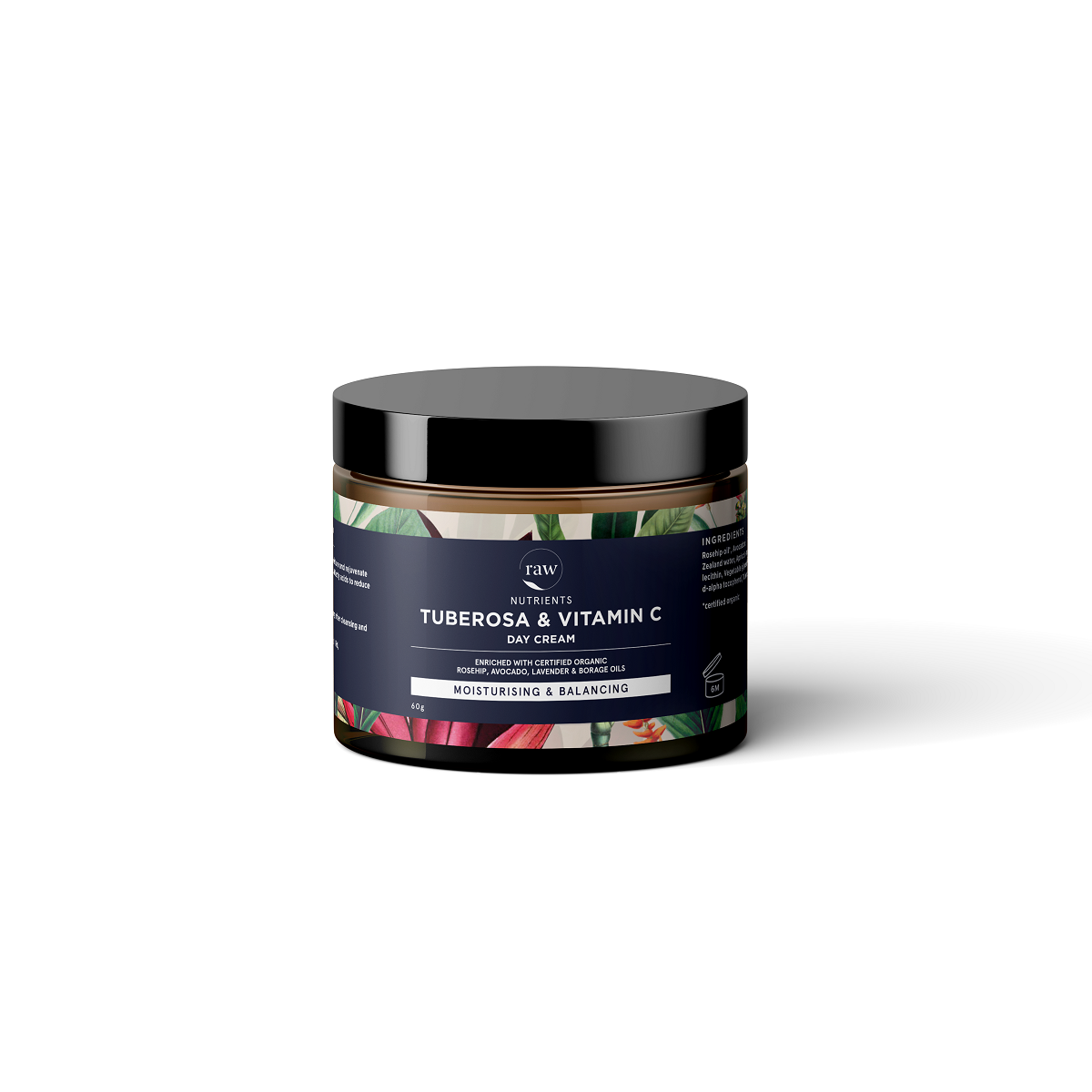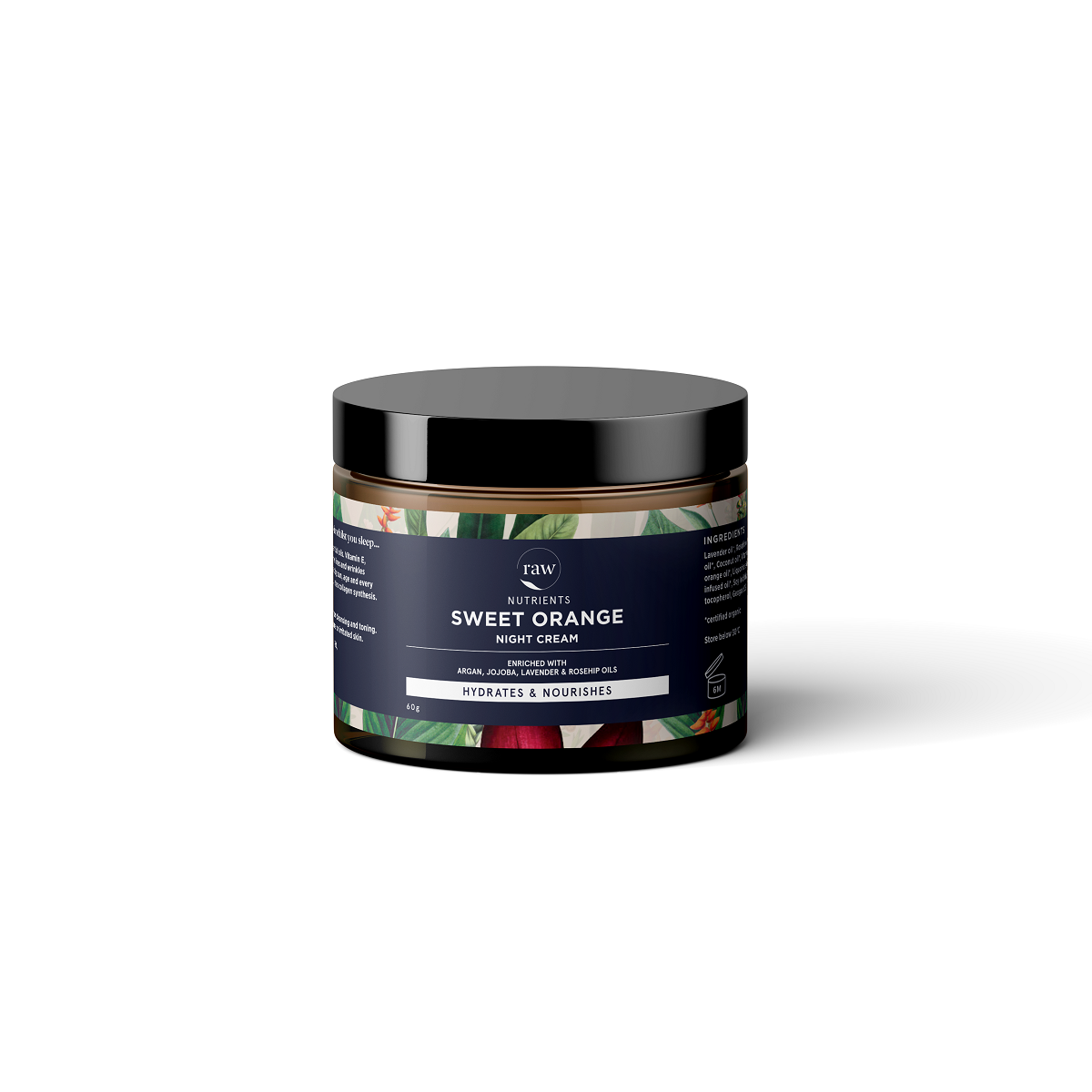-
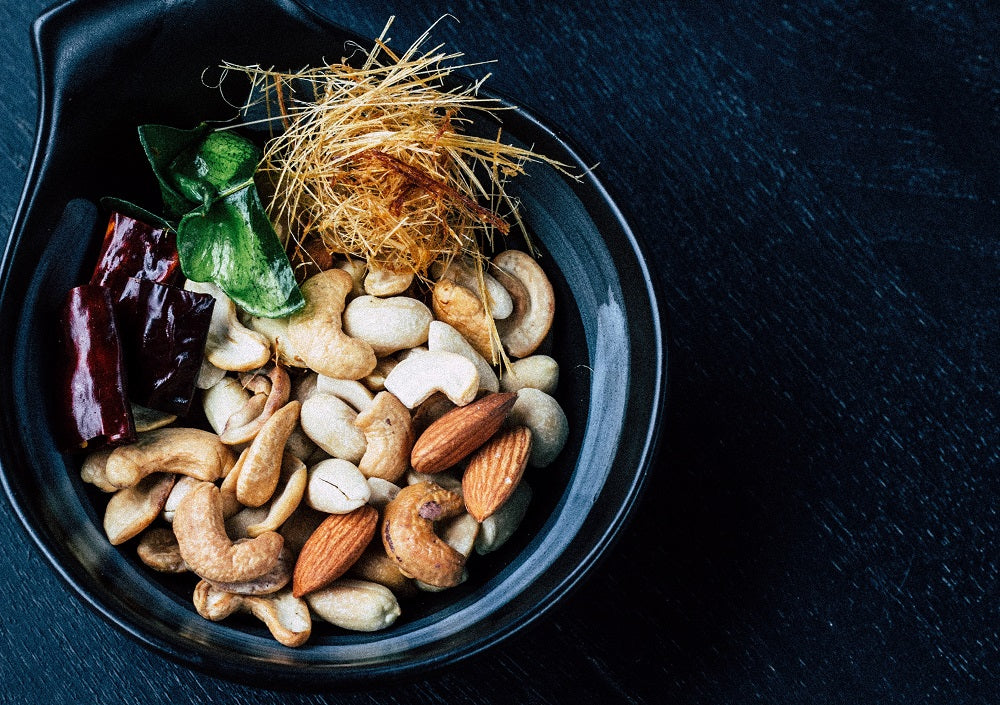
Think about zinc!
Zinc plays many important roles in your body. This essential dietary mineral is involved in metabolism processes, hel...
-

Magnesium; Are We Consuming Enough?
There is widespread magnesium deficiency, and given the importance of magnesium in the body, it is but essential to r...
-
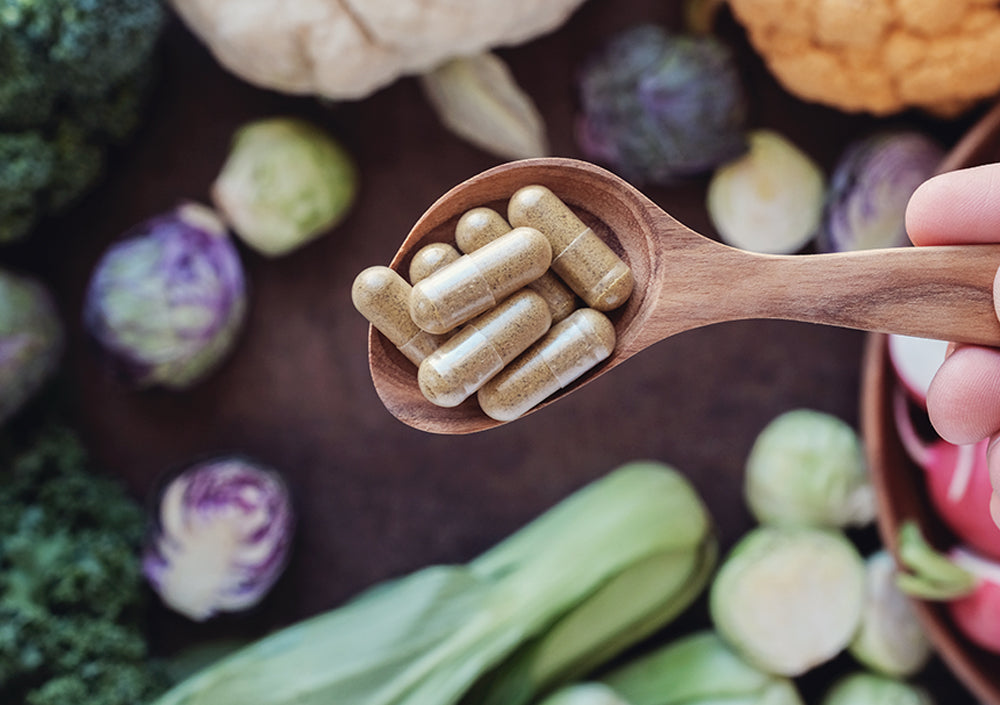
Probiotics; When & how do they work best?
Your gastrointestinal system comprises different microorganisms. The gut bacteria play a vital role in the health and...
-
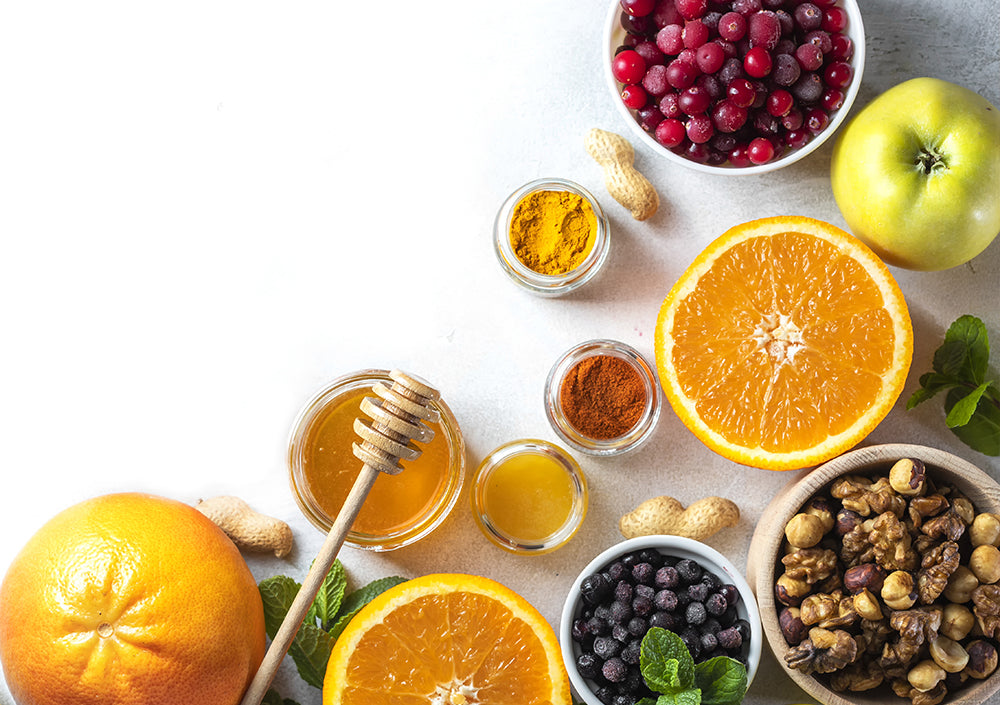
Vitamin C; How does it benefit wellness?
Vitamin C has gained popularity as an antioxidant. However, research claims that it can act as both an antioxidant an...

Food and Mood: Eating Habit Influences The State of Mind
Do you often remain frustrated, anxious, and depressed? Your diet could be the reason. While food and mood maybe just a letter apart, they enjoy a delicate relationship. According to a 2016 study, a diet rich in fruits and vegetables is capable of providing an increase in life satisfaction, which is almost an equivalent of the happiness a jobless person experiences upon finding a job.[1] Linking good food and mood, it compares the satisfaction gained from eating eight portions of fruits and vegetables with the happiness of moving from a state of unemployment to employment. The study on diet and food claims that eating up to eight servings of a fruit-veggie diet could elevate mood, besides having other psychological and physical health benefits.
Depression and Diet: The Connection Explored
A 2013 study published in the Preventive Medicine journal claims that low-nutrient food might affect your mood.[2] The study was conducted on two groups of women. The group that ate less nutritious foods was found to have a higher risk of developing depression compared to those who included more vitamin D in their diets. The study throws light on the protective effects of nutritious fruits and vegetables while highlighting the adverse effects of animal foods on mood.
Plant Food and Mood: How Does It Work
Researchers believe that the psychological boost might be triggered by a dose of antioxidants and carotenoids from fruits and vegetables.[3] The greater the intake of pigments called carotenoids, the higher the levels of optimism. Further, the food and mood association is highlighted by other studies that suggest an increased intake of vitamin B12 from a fruit-veggie diet may boost serotonin levels – the happiness chemical.[4] Serotonin is a brain neurotransmitter that helps regulate mood and contributes to happiness.
Improving your diet and eliminating bad food may help to:
- Boost your mood
- Make you feel more energetic
- Clear your mind of negativity
Another five-year-long study published in the British Journal of Psychiatry analyzed dietary patterns and the diet and mood connection. The research found that the group eating whole foods reported fewer depressive symptoms compared to the one that indulged in processed foods.[5]
In another study published in Nutrition Journal, plant-eaters reported more positive mood compared to those on an omnivorous diet.[6]
Previous studies find a connection between depression and inflammation in the brain. These studies also relate depression to chemical imbalances of neurotransmitters. However, new studies reveal that antioxidant-rich plant foods play a role in repairing damage and reducing inflammation in brain cells.[7]
Plant Food and Mood: Plant Diet Can Make You Happy
Phytochemicals in a fruit-veggie diet can help restore the neurotransmitter balance.[8] A person suffering from depression reports high levels of monoamine oxidase (MAO) and low levels of neurotransmitters. The enzyme MAO breaks down neurotransmitters, which are pivotal to regulating mood. The lower level of neurotransmitters is linked with a depressive state of mind.
Plant food is rich in phytochemical quercetin, which is better known for its natural antidepressant properties, and inhibits MAO.[9]
Quercetin can elevate serotonin, dopamine, and norepinephrine while lowering the level of MAO. Animal food is rich in arachidonic acid that has an opposite effect on neurotransmitters, setting off a cascade of chemical reactions in the brain.[10] As a result, the body suffers from an overactive inflammatory response. Anxiety, depression, and stress are the consequent result of the inflammation reaching the brain.
People who tend to avoid inflammatory animal foods rich in arachidonic acid report a more positive mood. This means that a plant-based diet can help you manage and even avoid symptoms of depression and anxiety.
Diet and Mood: The Role of Anti-Inflammatory Foods
To elevate mood through food, it is advisable to consume plant food rich in omega-3 fatty acids. Leafy greens, flax seeds, chia seeds, and walnuts are some of the richest sources of omega 3 and alpha-linolenic acid. Additionally, most plant sources of omega 3 are also rich in amino acid tryptophan used by the brain to produce serotonin – the happiness neurotransmitter.[11]
Some of the richest plant-based sources of tryptophan are peas, broccoli, leafy greens, mushrooms, sunflower seeds, soybean, watercress, and pumpkin seeds. Contrarily, animal food consumption may lower levels of serotonin due to an influx of amino acids in the bloodstream, which compete with tryptophan to get to the brain.
More competition means less amount of tryptophan enters the brain. As a result, there is a lower production of serotonin. Research reveals that high carb meals increase the production of insulin in the body, thus allowing muscle cells to absorb the influx of amino acids.[12] Consequently, tryptophan is able to cross the barrier and reaches the brain, thus helping improve serotonin levels.
Thus, your focus should be to create optimal levels of tryptophan through a diet comprising a mix of plant proteins and complex carbohydrates. With a balanced diet, you can ensure sufficient serotonin production in the brain and enjoy constant feelings of wellbeing.
Cost of Depression: The Economic Benefits of Plant Food and Mood
Besides having a toll on your emotional health, depression can make you feel physically sick, irritated, and unforgiving. A depressive state of mind can turn suicidal. Not only this, your workplace productivity might suffer and you might become dependent on antidepressants. Your health care costs might rise. Antidepressants do not come without outside effects. It could become a lifelong expenditure.
Statistics [13]reveal that depression incurs a loss of $83 billion each year due to lost productivity and high medical expenses.
Further research [14]explores the impact of diet on emotional health and productivity at 10 insurance companies in the United States. It suggests a plant-based dietary intervention to improve emotional well-being and reduce the feelings of fatigue, depression, and anxiety. Plant food has a significant positive impact on physical and emotional well-being. This can further translate to improved productivity levels, a better quality of life, healthy relationships, and reduced health care costs.
Instead of taking to medications, it is better to follow a plant-based diet, which provides you with a good supply of antioxidants and polyphenols. Such plant-based diet can serve as a natural, inexpensive, and noninvasive therapeutic way to boost mental well-being without the side effects associated with antidepressants.
References
[1] Mujcic, R. & Oswald, A. (2016). Evolution of well-being and happiness after increases in consumption of fruit and vegetables. American Journal of Public Health, 106, 1504-1510. https://doi.org/10.2105/AJPH.2016.303260
[2] McMartin, S.E., Jacka, F.N., & Colman, I. (2013). The association between fruit and vegetable consumption and mental health disorders: evidence from five waves of a national survey of Canadians. Preventive Medicine, 56(3-4), 225-30. doi: 10.1016/j.ypmed.2012.12.016. Epub 2013 Jan 4.
[3] Brookie, K. L., Best, G. I., & Conner, T. S. (2018). Intake of Raw Fruits and Vegetables Is Associated With Better Mental Health Than Intake of Processed Fruits and Vegetables. Frontiers in psychology, 9, 487. doi:10.3389/fpsyg.2018.00487
[4] Kennedy D. O. (2016). B Vitamins and the Brain: Mechanisms, Dose and Efficacy--A Review. Nutrients, 8(2), 68. doi:10.3390/nu8020068
[5] Akbaraly, T. N., Brunner, E. J., Ferrie, J. E., Marmot, M. G., Kivimaki, M., & Singh-Manoux, A. (2009). Dietary pattern and depressive symptoms in middle age. The British journal of psychiatry: the journal of mental science, 195(5), 408–413. doi:10.1192/bjp.bp.108.058925
[6] Beezhold, B.L., Johnston, C.S., & Daigle, D.R. (2010). Vegetarian diets are associated with healthy mood states: a cross-sectional study in seventh day adventist adults, 9, 26, 1475-2891UR. doi.org/10.1186/1475-2891-9-26
DO - 10.1186/1475-2891-9-26ID.
[7] Pandey, K. B., & Rizvi, S. I. (2009). Plant polyphenols as dietary antioxidants in human health and disease. Oxidative medicine and cellular longevity, 2(5), 270–278. doi:10.4161/oxim.2.5.9498
[8] Kumar, G. P., & Khanum, F. (2012). Neuroprotective potential of phytochemicals. Pharmacognosy reviews, 6(12), 81–90. doi:10.4103/0973-7847.99898
[9] Anjaneyulu, M., Chopra, K., & Kaur, I. (2003). Antidepressant activity of quercetin, a bioflavonoid, in streptozotocin-induced diabetic mice. Journal of Medicinal Food, 6(4), 391-395.
[10] Rapoport, S. I. (2008). Arachidonic acid and the brain. The Journal of nutrition, 138(12), 2515–2520. doi:10.1093/jn/138.12.2515
[11] Kałużna-Czaplińska, J., et al. (2019). How important is tryptophan in human health. Critical reviews in food science and nutrition, 59(1):72-88. doi: 10.1080/10408398.2017.1357534. Epub 2017 Sep 1.
[12] Lieberman, H.R. (1999). 14Amino Acid and Protein Requirements: Cognitive Performance, Stress, and Brain Function. The Role of Protein and Amino Acids in Sustaining and Enhancing Performance. Institute of Medicine (US) Committee on Military Nutrition Research. Washington (DC): National Academies Press (US)
[13] Beck, A., Crain, A. L., Solberg, L. I., Unützer, J., Glasgow, R. E., Maciosek, M. V., & Whitebird, R. (2011). Severity of depression and magnitude of productivity loss. Annals of family medicine, 9(4), 305–311. doi:10.1370/afm.1260
[14] Mishra, S., Xu, J., Agarwal, U., Gonzales, J., Levin, S., & Barnard, N. D. (2013). A multicenter randomized controlled trial of a plant-based nutrition program to reduce body weight and cardiovascular risk in the corporate setting: the GEICO study. European journal of clinical nutrition, 67(7), 718–724. doi:10.1038/ejcn.2013.92
You might be interested in...
Raw Resources
Read About the Science Behind the Supplements

